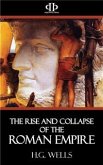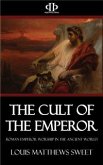Albeit the jealous temper of mankind, ever more disposed to censure than to praise the work of others, has constantly made the pursuit of new methods and systems no less perilous than the search after unknown lands and seas; nevertheless, prompted by that desire which nature has implanted in me, fearlessly to undertake whatsoever I think offers a common benefit to all, I enter on a path which, being hitherto untrodden by any, though it involve me in trouble and fatigue, may yet win me thanks from those who judge my efforts in a friendly spirit. And although my feeble discernment, my slender experience of current affairs, and imperfect knowledge of ancient events, render these efforts of mine defective and of no great utility, they may at least open the way to some other, who, with better parts and sounder reasoning and judgment, shall carry out my design; whereby, if I gain no credit, at all events I ought to incur no blame. When I see antiquity held in such reverence, that to omit other instances, the mere fragment of some ancient statue is often bought at a great price, in order that the purchaser may keep it by him to adorn his house, or to have it copied by those who take delight in this art; and how these, again, strive with all their skill to imitate it in their various works; and when, on the other hand, I find those noble labours which history shows to have been wrought on behalf of the monarchies and republics of old times, by kings, captains, citizens, lawgivers, and others who have toiled for the good of their country, rather admired than followed, nay, so absolutely renounced by every one that not a trace of that antique worth is now left among us, I cannot but at once marvel and grieve; at this inconsistency; and all the more because I perceive that, in civil disputes between citizens, and in the bodily disorders into which men fall, recourse is always had to the decisions and remedies, pronounced or prescribed by the ancients...
Hinweis: Dieser Artikel kann nur an eine deutsche Lieferadresse ausgeliefert werden.
Hinweis: Dieser Artikel kann nur an eine deutsche Lieferadresse ausgeliefert werden.









